
Ontario’s public service heads back to the office, meaning more traffic and emissions
For 15 years and counting, my commute from Mississauga to Toronto has been mired by...
Over the past three years, undisclosed BC Hydro employees quietly awarded more than $430 million in contracts — without any competition — to three dozen companies and consultants for work on the troubled Site C hydro dam, according to a list obtained by The Narwhal.
SNC-Lavalin, which in 2013 was banned from World Bank contracts for eight years due to fraud and corruption, was granted more than $62 million in sole-source contracts for engineering services on the hugely over-budget project, according to the list, released by BC Hydro in response to a freedom of information request. In one case, SNC-Lavalin was awarded a contract worth more than $25 million without any competing bids.
“It’s shocking,” said B.C. Green Party leader Sonia Furstenau. “This whole project has been so shrouded in secrecy and lack of transparency — and a complete disregard for the expectations that all of us should have for how public money is spent, and how public contracts are awarded.”
Governments in Canada generally go through a transparent bidding process for major contracts that allows multiple contractors to bid on the same project after a public body posts the criteria. A sole-source contract, also known as a no-bid or direct-award contract, allows selected suppliers to receive potentially lucrative contracts without any competition.
The federal government prohibits direct-award contracts worth more than $25,000 unless there is a special justification such as a national emergency or national security interests. The B.C. government allows direct-award contracts under certain circumstances — including in an emergency or if only one contractor is qualified or available to provide the goods, services or construction required. B.C. also requires ministries granting direct-award contracts to disclose recipients and the amount of money they receive. But BC Hydro and other Crown corporations are exempt from the policy, the B.C. Office of the Clerk confirmed in an email.
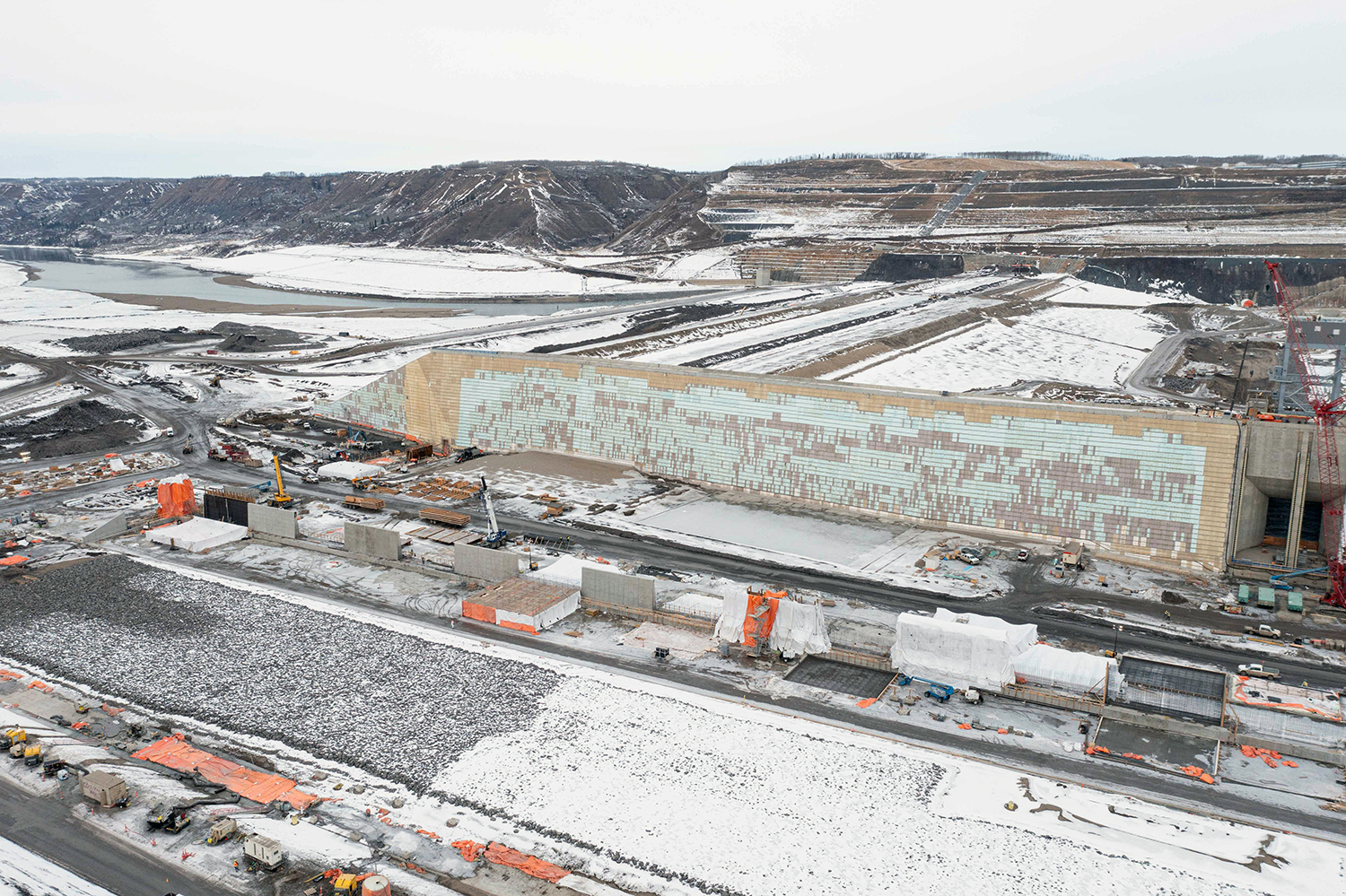
That means there is no requirement for BC Hydro to proactively disclose which companies or consultants it selects for direct-award work on the publicly funded Site C dam under construction on the Peace River in the province’s northeast. There is also no requirement for BC Hydro to proactively disclose who is making decisions to award millions of dollars of contracts, without competition.
BC Hydro took four months to respond to The Narwhal’s freedom of information request for a list of all direct-award contracts issued for work on the Site C project between 2020 and 2022. It censored the names of approximately one quarter of recipients, along with the amount of the awards and the type of work they were contracted to carry out.
David Silver, a faculty member at the University of British Columbia’s Sauder School of Business, who is also the university’s chair in business and professional ethics, said the lack of transparency around Site C direct-award contracts “suggests a culture which does not want to be held to account.”
The apparent secrecy makes it difficult for members of the public to track important developments in a project that has become a boondoggle for both the previous provincial Liberal government and the current New Democratic Party government.
The cost of the Site C dam has ballooned from $8.8 billion to $16 billion, making it the most expensive hydro dam in Canadian history — and not nearly the largest. Once complete, the dam will flood 128 kilometres of the Peace River and its tributaries, the equivalent distance of driving from Toronto to Niagara Falls or from Vancouver to Whistler. Among many impacts, the project will destroy Indigenous cultural sites and burial sites, eliminate some of Canada’s richest farmland, eradicate habitat for more than 100 species at risk of extinction and poison bull trout and other fish with methylmercury.
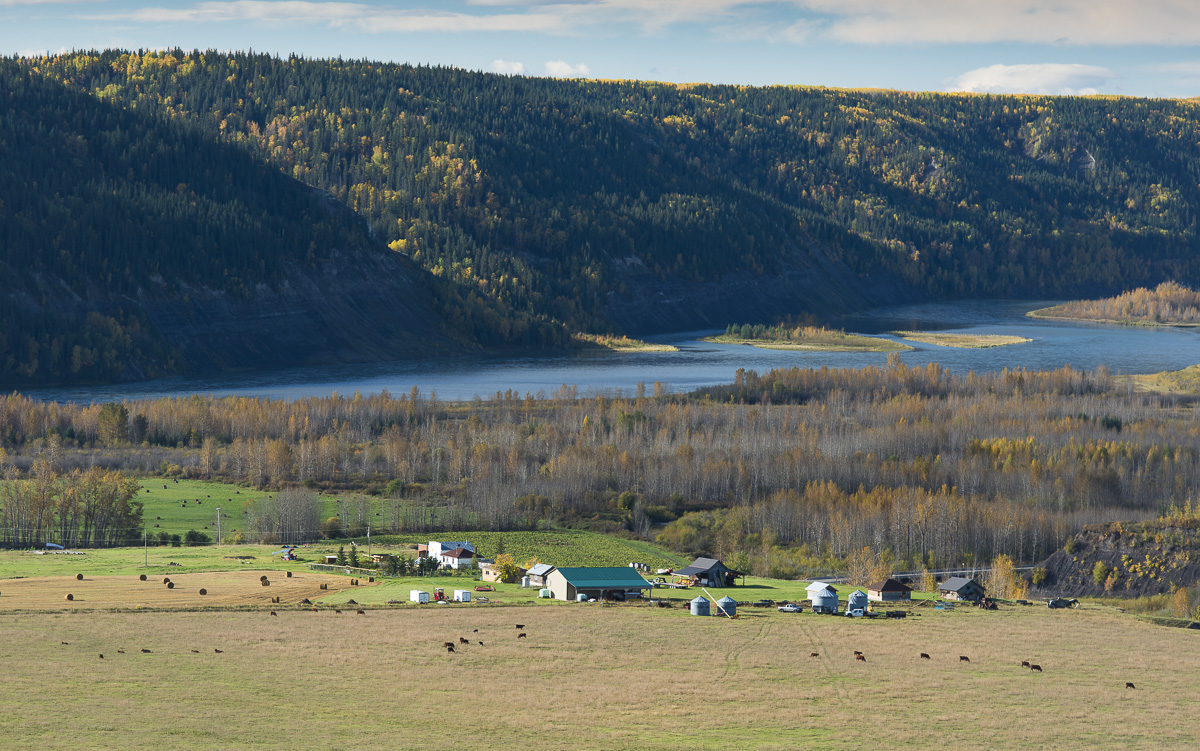
BC Hydro says the Site C dam will have the capacity to produce 1,100 megawatts of power — less than one-fifth of the capacity of Canada’s largest dam, the Robert Bourassa hydro project in northern Quebec.
The dam, plagued with geotechnical issues that were kept secret from the public, will help power the province’s new liquefied natural gas (LNG) industry championed by B.C.’s NDP government, the Alberta government’s energy war room and the Canadian Association of Petroleum Producers.
BC Hydro defended its procurement practices in an emailed response to questions from The Narwhal, saying its approach for Site C was designed to achieve “value for money for ratepayers,” as well as to meet the project schedule, budget and technical requirements.
“It’s also designed to help provide economic opportunities for Indigenous groups, northern communities and the rest of the province,” BC Hydro spokesperson Greg Alexis said in the email.
The Crown corporation also noted it posts hundreds of opportunities for public tendering every year and said 90 per cent of Site C project contracts — based on value — have been awarded through open competitions since dam construction began in July 2015. Alexis added the corporation is subject to strict rules that govern when a direct award can be made.
“We have been clear that, as part of the Site C project, Indigenous accommodation may include contracting opportunities,” he wrote.
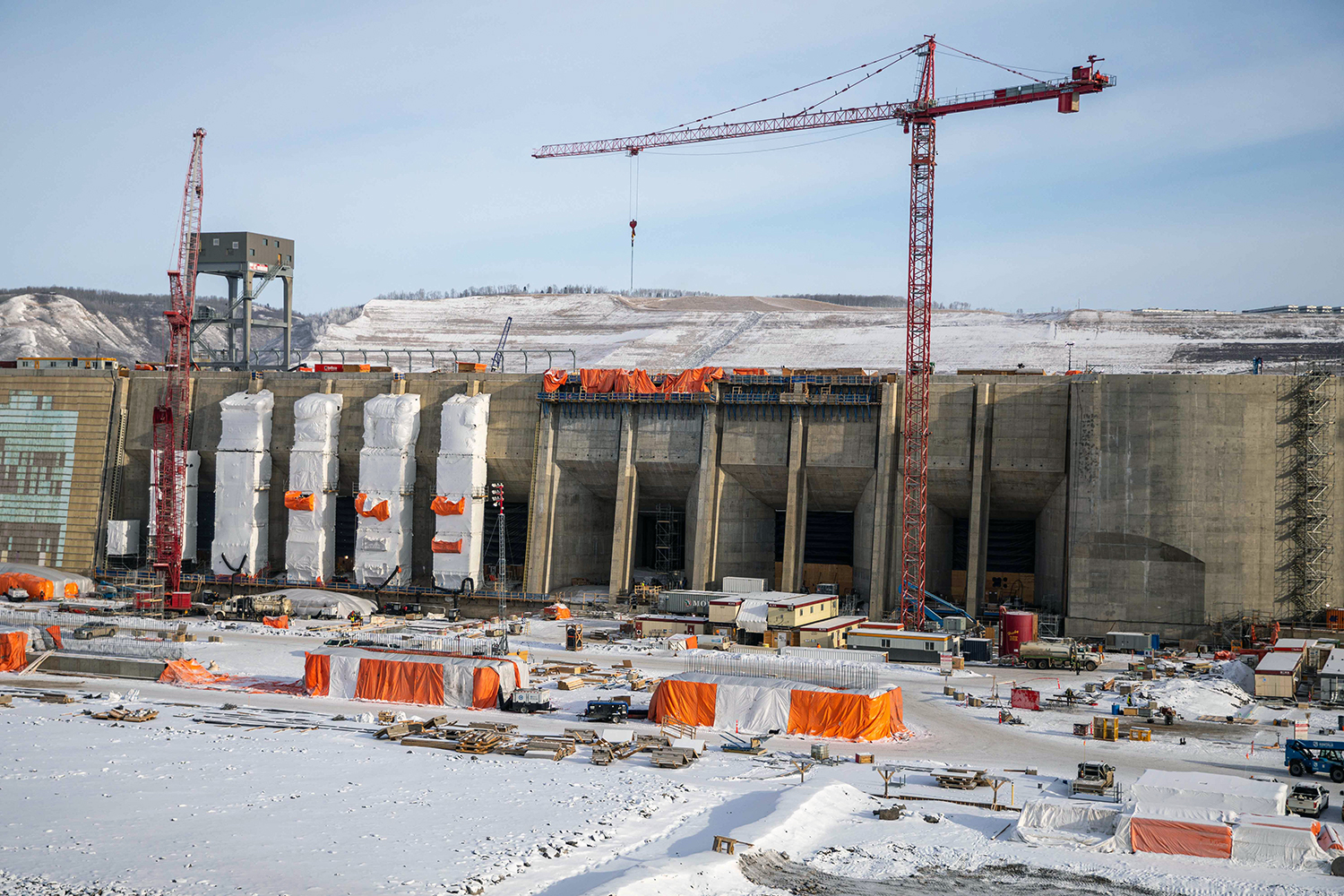
But Silver from the Sauder School of Business said he finds it “deeply troubling” that approximately one-quarter of the names of no-bid contract recipients and the amount of money they received were redacted from the documents obtained by The Narwhal. It’s also troubling that information about the contracts was only available through a freedom of information request and the public has no idea who is making huge decisions about how to spend public funds, he said.
The Narwhal asked BC Hydro which employees or committees make no-bid contract decisions but did not receive an answer.
“I don’t see the justification for it,” Silver said. “If there is a justification, they need to declare it so at least that can be held to scrutiny. … It undermines the confidence of the public that [public funds] are being spent in a responsible manner.”
Silver said BC Hydro has a duty to spend funds responsibly and fairly openly. “And an important safeguard is that they do so as transparently as possible.” In rare instances where transparency might not be possible, Silver said public bodies like BC Hydro must explain why they are not being transparent so the public has confidence they are telling the truth. “And the problem here is if they’re not being transparent, it’s very hard to hold them to account.”
BC Hydro justified the censorship of approximately one-quarter of the recipients of no-bid contracts during the three years on the grounds that disclosure would reveal legal advice, could harm relations between BC Hydro and an Indigenous governing entity or could result in undue financial loss or gain to a person or organization.
Silver said sometimes awarding no-bid contracts can be justified: for example, in an emergency situation where something needs to be fixed immediately or in a case where a firm is deeply invested in knowledge and expertise and it would be costly and disruptive to turn to another supplier to accomplish a particular task.
“And sometimes the practice is corrupt,” he added.
Given the recent history of SNC-Lavalin, “there is extra reason to err on the side of transparency,” Silver said.
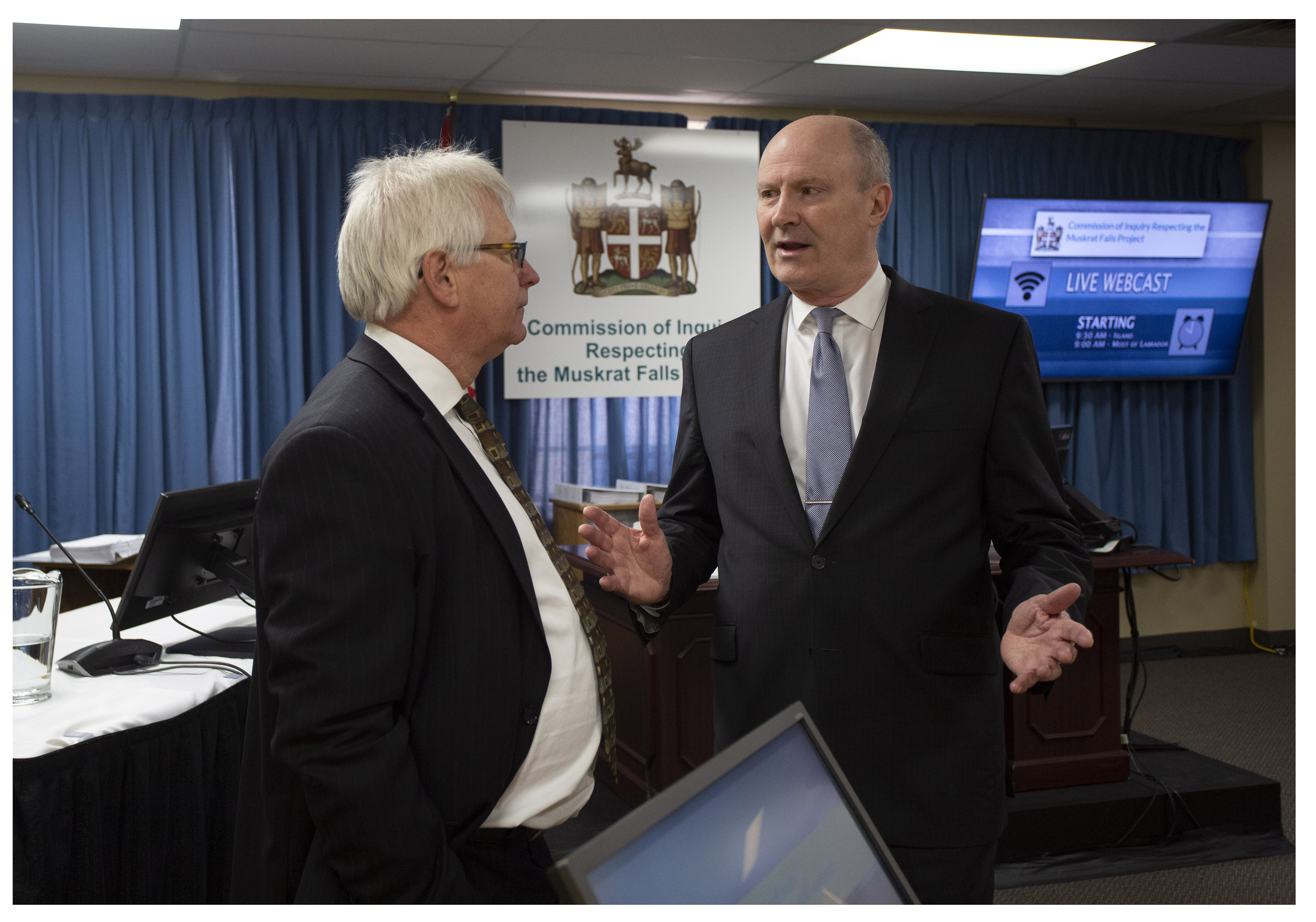
In 2019, SNC-Lavalin Construction, a subsidiary of Montreal-based SNC-Lavalin Group, pleaded guilty to fraud and agreed to pay a fine of $280 million. SNC-Lavalin Group and two of its subsidiaries had faced charges alleging they paid almost $48 million to influence government decisions in Libya.
The case embroiled the company in a controversy involving potential interference with the Canadian political system. The SNC-Lavalin affair centred on former federal attorney general Jody Wilson-Raybould’s claim she was pressured by Prime Minister Justin Trudeau’s inner circle to settle criminal charges against the company through a deferred prosecution agreement, which is akin to a plea deal.
In May 2022, SNC-Lavalin disclosed it will pay Quebec almost $30 million over three years to settle bribery charges related to the Jacques Cartier Bridge deck rehabilitation project, after RCMP arrested two former company executives. The settlement came nearly five years after the conviction of the former president and CEO of the Federal Bridge Corp., who admitted to receiving $2.23 million in bribes from SNC-Lavalin in connection with the contract to repair the bridge, the Canadian Press reported at the time.
In 2018, a former Quebec hospital executive who accepted a $10-million bribe in return for helping SNC-Lavalin win a Montreal hospital-building contract was sentenced to 39 months in prison, in a scandal provincial authorities described as the largest corruption fraud case in Canadian history.
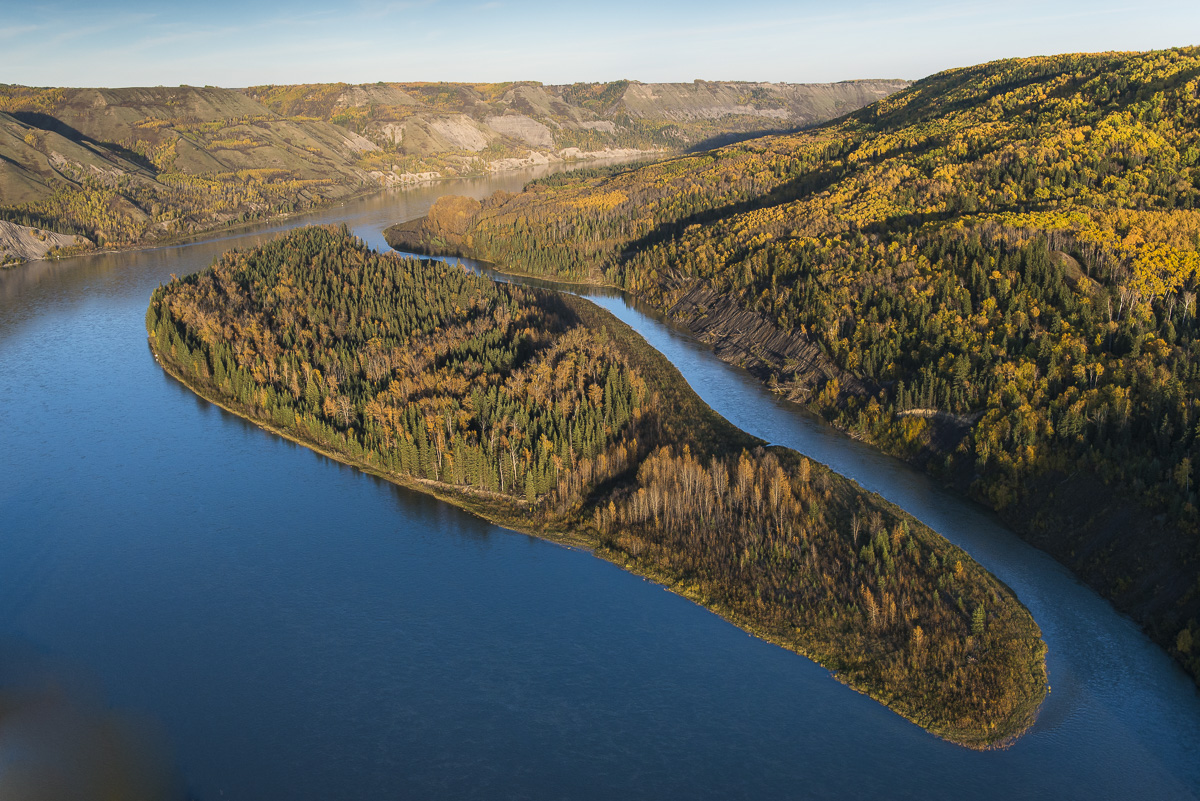
Furstenau questioned the direct awards to SNC-Lavalin given the company’s history. “I talk a lot about trust in democracy and trust in our institutions, and the kinds of things that are undermining that trust or are corrosive to that trust,” she said. “And then you find out that there are these enormous contracts being awarded with no bid, in a non-transparent way to a company that has, shall we say, a rather tarnished reputation. It’s so disturbing.”
In a 2021 statement announcing the World Bank had lifted sanctions against the company two years earlier than anticipated, SNC-Lavalin said the decision followed a rigorous assessment and monitoring process. “Since 2012, SNC-Lavalin has done its homework,” the company’s president and CEO Ian L. Edwards said at the time. “Over nearly 10 years, we evolved through honest reflection, hard work and a sustained commitment by and toward all our employees, leading to the integration of integrity best practices.”
Furstenau compared Site C direct-award contracts to the transparent and competitive process B.C. MLAs must follow to commission even minor work in their constituency offices. MLAs are required to find several contractors or companies to bid on each contract, she pointed out.
“There’s a whole complicated process for transparency and accountability in contracts for small jobs in constituency offices,” Furstenau said. “That should apply to multi-billion-dollar projects, strenuously. There should be an expectation that contracts are transparent, that they are posted, that it is clear who is bidding for them. And then the public can see at any time how these contracts are being awarded and who they’re being awarded to, and how public money is being spent.”
Harvey Elwin, an international hydro dam construction expert, earlier described the high level of confidentiality surrounding the Site C dam as “extraordinary,” saying he had never encountered such secrecy during his five decades designing, developing and managing large hydroelectric projects, including China’s Three Gorges dam.
SNC-Lavalin’s work on the Site C dam is not mentioned on its website, which profiles the company’s previous work on two smaller hydro projects in B.C.
In an email, SNC-Lavalin media relations manager Laurence Myre Leroux said since 2010 SNC-Lavalin and Vancouver-based engineering and consulting firm Klohn Crippen Berger received direct-award contracts totalling about $350 million for Site C project work that includes “detailed design of the earthfill dam and generating station,” as well as technical support during construction and other engineering services. The freedom of information documents show Klohn Crippen Berger received almost $42 million in no-bid Site C contracts over the past three years. Leroux referred all other questions to BC Hydro. Klohn Crippen Berger did not respond to a request for comment.
For one earlier contract, SNC-Lavalin provided BC Hydro with a “shadow estimate” for its forecasted $8.3-billion price tag for the dam. A shadow estimate reviews numbers and costs to confirm they are accurate. SNC-Lavalin’s shadow estimate proved to be wildly wrong, missing the mark by more than $7 billion.
Alexis, the BC Hydro spokesperson, said SNC-Lavalin and Klohn Crippen Berger received direct Site C project awards because of their historical knowledge of the project, “their historical role as designer on the project dating back to the 80s and 90s and their experience and expertise in large hydro projects within B.C., across Canada and around the world.”
Other long-time recipients of direct-award contracts include Tracker Contracting, a road and lease construction company based in Fort St. John, and Formula Contractors. Tracker Contracting received more $12 million in direct-award contracts from 2020 through 2022, while Formula Contractors, a construction services company based in Prince George, was awarded more than $63 million, receiving one contract for more than $28 million.
The biggest winners of Site C no-bid contracts over the three years were companies belonging to the Duz Cho group based in Chetwynd, owned by McLeod Lake Indian Band. Over a three-year period starting in 2020, Duz Cho companies were granted more than $95 million in no-bid contracts for clearing and construction work.
One company belonging to the Halfway River First Nation was also given $10 million for Site C “health clinic provider” services. Halfway River Frost, an industrial services company owned by the nation, was granted $37 million. M&M Resources Inc., a private clearing, logging and civil earth works company based in Fort St. John, garnered more than $6.5 million in no-bid contracts over the three years.
Tracker Contracting, Formula Contractors, Duz Cho and Halfway River First Nation did not respond to requests for comment.
TE Little Consulting, a firm headed by Tim Little, BC Hydro’s former chief engineer, received almost $900,000 in 2021 and 2022 in no-bid contracts for services as the Site C dam “independent engineer.” That’s on top of almost $700,000 Little previously received for Site C dam engineering services.
Earlier no-bid Site C dam contracts include two worth almost $11 million that undisclosed BC Hydro employees granted to a B.C. numbered company whose officers and directors were top executives of Petrowest, the Alberta company that went bankrupt and was dismissed from Site C’s main civil works consortium.
The largest contract, for $10.1 million, was awarded to the numbered company in July 2017 — just two weeks before Petrowest was let go from the consortium for insolvency and months after the company’s financial difficulties were reported in the media.
Silver said protecting the public interest may require a change in law to ensure transparency and the ability to hold BC Hydro and other public bodies to account. “If [the current law] gives them so much discretion that it’s essentially optional whether they comply or not, then the law needs to be changed.”
Some of the contractors won their first no-bid contracts years ago, when the B.C. Liberal Party was in power. B.C. United (formerly the B.C. Liberal Party) did not respond to a request to comment on the awards. Ernst & Young, the receiver for Petrowest, said it could not comment on any client work. The Narwhal was unable to reach Tim Little.
Furstenau said it’s been “a fool’s errand” to try to get information about the Site C project from the B.C. NDP government, particularly since the 2020 snap election that saw the party win a majority.
“The lack of transparency around Site C is stunning, considering it’s the largest public infrastructure project in B.C. history and the public knows nothing other than it has ballooned in cost and time enormously.”
Enbridge Gas will face Waterloo Region in a hearing before the Ontario Energy Board to renew an agreement that would allow the company to continue...
Continue reading
For 15 years and counting, my commute from Mississauga to Toronto has been mired by...

For our last weekly newsletter of the year, we wanted to share some highlights from...

The fossil fuel giant says its agreement to build pipelines without paying for the right...